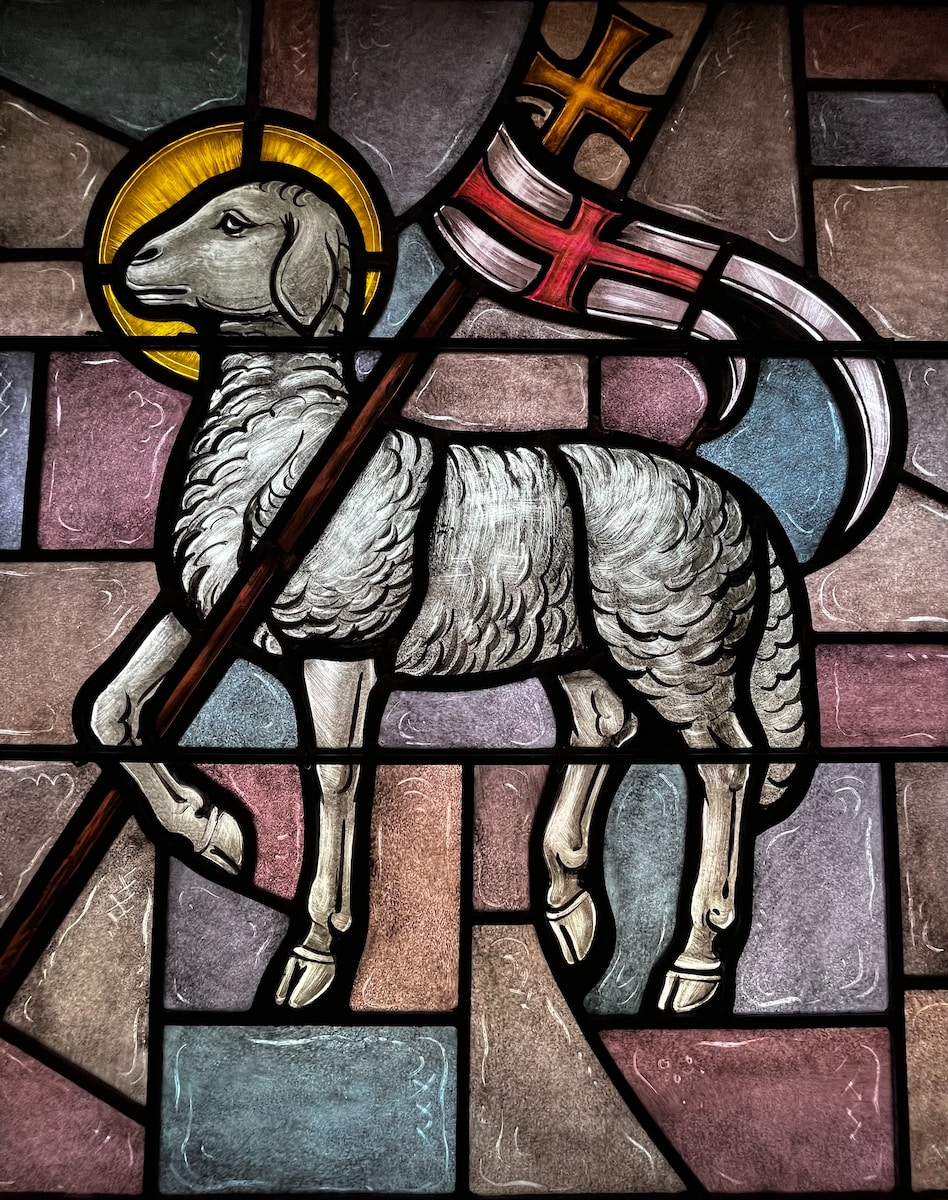Prophetic Significance of Leviticus 16 in relation to Jesus
Leviticus 16 holds profound prophetic significance in relation to Jesus. The chapter contains elements that foreshadow Jesus as the fulfillment of Old Testament prophecies. The sacrificial offerings and the scapegoat in Leviticus 16 symbolize Jesus’ role as the perfect sacrifice for the atonement of sins.
The rituals described in Leviticus 16 were established by God as a foreshadowing of the redemptive work of Jesus. The sacrificial system in the Old Testament pointed to the ultimate sacrifice that Jesus would make on the cross. The offering of animals as a sin offering represented the need for bloodshed to atone for sins. Jesus fulfilled this requirement by shedding His own blood, providing the ultimate atonement for the sins of humanity.
Furthermore, the scapegoat in Leviticus 16 serves as a significant symbol of Jesus’ role as the sin-bearer. In the ritual, the high priest would lay his hands on the scapegoat, symbolically transferring the sins of the people onto the goat, which was then sent away into the wilderness. This act demonstrated the removal of sins and the reconciliation between God and His people. Jesus, as the perfect sacrifice, took upon Himself the sins of the world and carried them away, providing the means for our reconciliation with God.
Understanding the prophetic significance of Leviticus 16 in relation to Jesus deepens our appreciation for the redemptive work of Christ. It affirms the fulfillment of Old Testament prophecies in Jesus and strengthens our faith in the Messiah. Leviticus 16 points us to the ultimate sacrifice and sin-bearer, Jesus Christ, who has provided the way for our atonement and reconciliation with God.
Gospel Implications of Leviticus 16
Leviticus 16 has significant implications for the Gospel message. The rituals and offerings described in this chapter provide insight into key concepts such as sin, atonement, and redemption.
The rituals performed on the Day of Atonement in Leviticus 16 were a shadow of the ultimate atonement provided by Jesus. They foreshadowed His sacrificial death on the cross, where He paid the price for our sins. Through His atoning sacrifice, Jesus provided the means for our redemption and reconciliation with God.
Leviticus 16 emphasizes the need for repentance, forgiveness, and reconciliation with God through Jesus. It underscores the seriousness of sin and the necessity of turning away from it. The rituals of the Day of Atonement serve as a reminder that without the shedding of blood, there is no forgiveness of sins.
Recognizing the connection between Leviticus 16 and the Gospel message enables us to grasp the magnitude of what Jesus accomplished on our behalf. It highlights the superiority of Jesus’ sacrifice and the completeness of His atonement. By placing our faith in Him, we can experience the forgiveness and salvation that He offers.
In addition to the sacrificial system, Leviticus 16 also introduces the concept of the mercy seat. The high priest would sprinkle blood on the mercy seat, which was the cover of the Ark of the Covenant, representing the presence of God. This act of sprinkling blood was a crucial part of the atonement process on the Day of Atonement. Jesus fulfilled this by shedding His blood on the cross, providing the ultimate atonement for the sins of humanity and opening the way for us to approach the mercy seat of God’s presence.
The Significance of the Day of Atonement
The Day of Atonement holds great significance in the context of Leviticus 16. It was a solemn and important day set aside for national mourning, repentance, and restoration. The rituals performed on this day were meant to cleanse both the people and the tabernacle from impurities.
The high priest, Aaron, played a crucial role on the Day of Atonement. He represented the people before God and made atonement for their sins. Through the sacrifices and rituals, the people were able to experience reconciliation with God and the restoration of their relationship with Him.
The Day of Atonement also symbolized the ongoing presence of God among His people. The cleansing and purifying aspects of the rituals demonstrated the need for holiness and the desire for a close relationship with God.
Understanding the significance of the Day of Atonement helps us appreciate the importance of reconciliation and restoration in our own lives. It reminds us of the need to humble ourselves, repent of our sins, and seek forgiveness from God. The Day of Atonement serves as a reminder of the ongoing need for reconciliation and restoration in the relationship between humanity and God.
The rituals performed on the Day of Atonement showcased the seriousness of sin and the need for repentance. The people were called to afflict their souls, acknowledging their sins and seeking God’s forgiveness. The Day of Atonement provided an opportunity for the people to reflect on their actions, repent of their sins, and turn back to God. This act of repentance and seeking forgiveness was a significant part of the reconciliation process.
Interpreting the Rituals of Leviticus 16
The rituals described in Leviticus 16 hold symbolic meaning and provide insight into the redemptive work of Jesus. Understanding these rituals is key to comprehending their significance in relation to Messianic Jesus.
Aaron’s role as the high priest in Leviticus 16 carries great significance. The instructions given to him highlight the importance of his actions in making atonement for the sins of the people. Aaron’s selection of two goats, one for a sin offering and one as the scapegoat, through the casting of lots, carries symbolic meaning.
The sacrifices, the sprinkling of blood, and the confession of sins by Aaron all play a vital role in the rituals of Leviticus 16. These actions symbolize the need for a perfect sacrifice and the removal of sins and guilt. The scapegoat represents the carrying away of sins and the removal of their consequences.
Interpreting these rituals in the context of Messianic Jesus helps us see how Jesus fulfilled them in His redemptive work. He became the ultimate sacrifice, shedding His blood for the forgiveness of sins. Through His sacrifice, Jesus carried away our sins and removed their consequences, offering us reconciliation with God.
Furthermore, the selection of two goats in Leviticus 16 is significant. One goat was sacrificed as a sin offering, representing the atoning sacrifice of Jesus. The other goat, the scapegoat, carried the sins of the people and was sent away into the wilderness, symbolizing the removal of sins through Jesus’ redemptive work. This foreshadowed Jesus’ role as the Lamb of God who takes away the sins of the world.
Reflection on Sins and Repentance
Leviticus 16 emphasizes the importance of reflecting on our sins and humbling ourselves before God. The rituals performed on the Day of Atonement serve as a reminder of the seriousness of sin and the need for repentance.
The rituals in Leviticus 16 call for sincere reflection on sins and seeking forgiveness from God. This reflection involves acknowledging our sins, confessing them before God, and turning away from them. It requires genuine repentance and a desire to be reconciled with God.
The application of reflection on sins and repentance in our lives today is crucial. Just as the rituals in Leviticus 16 called for the people to humble themselves and seek forgiveness, we too are called to examine our hearts, confess our sins, and seek reconciliation with God through Jesus.
Recognizing Jesus as the perfect sacrifice and mediator allows us to approach God with confidence, knowing that He forgives and restores us. The reflection on sins and repentance encouraged by Leviticus 16 enables us to continually grow in our relationship with God and experience His grace and forgiveness.
Through reflection on our sins, we gain a deeper understanding of our need for salvation. It allows us to acknowledge our shortcomings and turn to God for forgiveness and restoration. This process of reflection and repentance is essential for our spiritual growth and transformation in Christ.
The Eternal Significance of Atonement
The atonement made on the Day of Atonement in Leviticus 16 holds lasting impact and eternal significance. The temporary atonement provided in the Old Testament finds its fulfillment and completion in the atoning work of Jesus in the New Testament.
Leviticus 16 highlights the contrast between the temporary atonement in the Old Testament and the permanent atonement through Jesus. The sacrifices performed on the Day of Atonement had to be repeated year after year, but Jesus’ sacrifice on the cross was sufficient for all time.
Jesus’ atonement is the ultimate and complete sacrifice for the forgiveness of sins. It provides a way for humanity to be reconciled with God and receive eternal redemption. The connection between Leviticus 16 and the concept of atonement in Christian theology deepens our understanding of the magnitude of God’s love and grace.
By recognizing the eternal significance of atonement, we can appreciate the depth of what Jesus accomplished on the cross. His sacrifice opens the door to eternal life and restores our relationship with God. The atoning work of Jesus should inspire us to live in gratitude and obedience to Him.
Moreover, the concept of atonement in Leviticus 16 points to the necessity of a perfect sacrifice to appease God’s wrath and bring about reconciliation. The temporary atonement in the Old Testament served as a foreshadowing of Jesus’ ultimate sacrifice, which provided eternal atonement for the sins of humanity. Through His death on the cross, Jesus fulfilled the requirements of the Law and made a way for us to be reconciled with God.
Conclusion: Understanding the Connection between Leviticus 16 and Messianic Jesus
In conclusion, the connection between Leviticus 16 and Messianic Jesus holds profound theological, prophetic, and Gospel implications. Leviticus 16 provides a framework for understanding Jesus’ role as the ultimate High Priest and sacrificial offering.
The rituals and symbolism in Leviticus 16 foreshadow Jesus’ redemptive work, fulfilling Old Testament prophecies and emphasizing the need for repentance and forgiveness. The Day of Atonement, as described in Leviticus 16, underscores the significance of reconciliation and restoration in the relationship between humanity and God.
By interpreting the rituals of Leviticus 16 and reflecting on sins and repentance, we can deepen our faith and understanding of Jesus’ redemptive work. The eternal significance of atonement, as depicted in Leviticus 16, highlights the depth of God’s love and grace.
Understanding the connection between Leviticus 16 and Messianic Jesus invites us to explore the richness of the Gospel message and apply its truths to our lives. It calls us to reflect on our sins, seek forgiveness, and embrace the atoning work of Jesus for our salvation. May this exploration deepen our faith and lead us to a closer relationship with our Savior, Jesus Christ.
#Leviticus16 #MessianicJesus #PropheticSignificance #Atonement #SacrificialOfferings #Scapegoat #Redemption #Repentance #Holiness #EternalSignificance #NewCovenant #Faith #ReflectionOnSins #GodsPlan #ChristianTheology #GospelImplications



